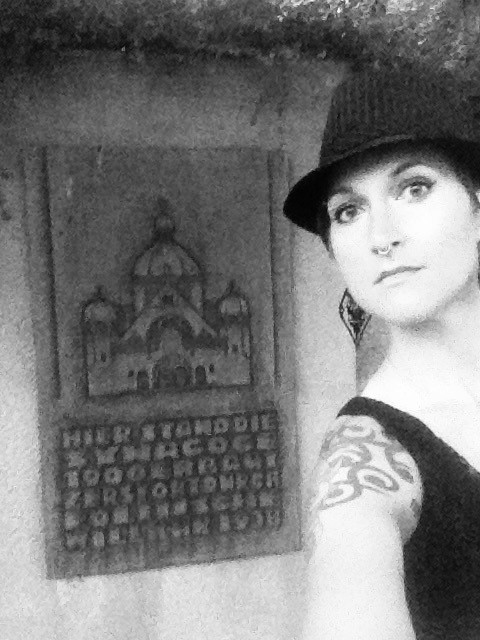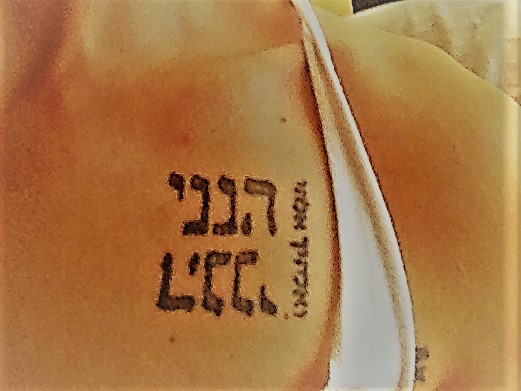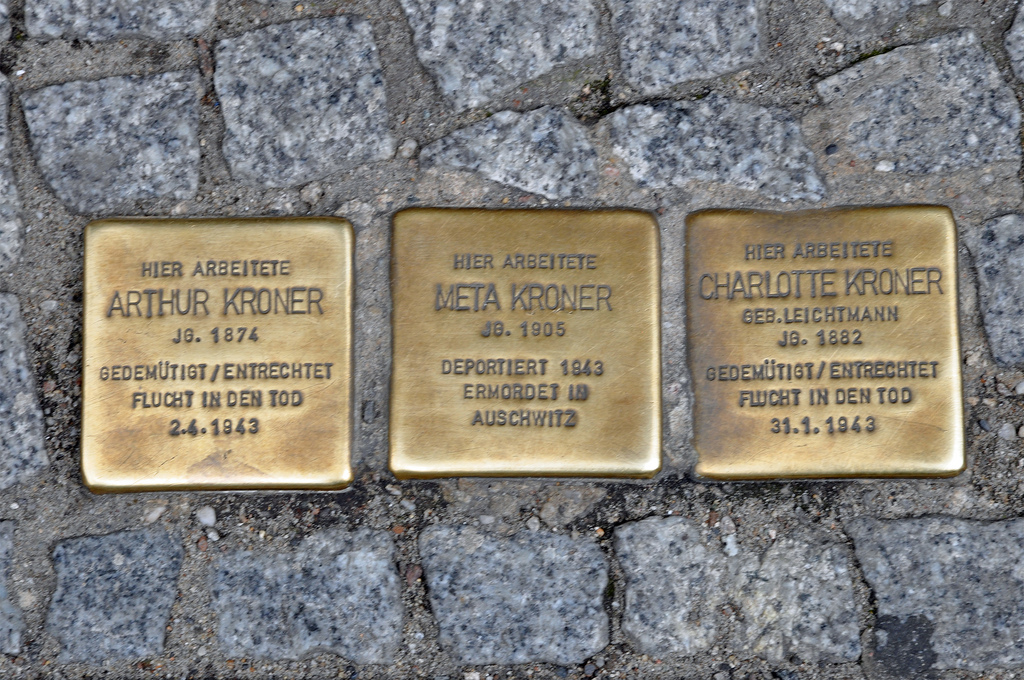After I moved to Germany in March 2015, friends on both sides of the pond asked me if I was scared of my new home.
Scared? Why should I be scared? Oh, right. Because I’m Jewish and, as one of my former students put it, “pur-tay queer.” Yes, there are neo-Nazis in Germany, but they don’t have enough political power to be a problem, and they seem to do a good job of making themselves appear silly. I’m also a big girl. I stand 6’1’’ and am a heavily tattooed and pierced former competitive weightlifter. So, while being Jewish and a gender non-conformist would have been two strikes against me during the Holocaust, I don’t think I am going to be the first person the skinheads in Germany would mess with in 2017.
Sure, my experience of my Jewishness has changed since I moved—there is no synagogue in the city where I live, so that is hurdle #1—and there has been the occasional strange comment about Jews from people I meet. The most memorable moment for me was when I went to the courthouse to register in the city. The official state religion in Germany is Christianity, and if you a practicing Christian, you have to pay taxes to the church, so the state collects this information from its residents. When the agent asked about my religious identity, I said I am Jewish. She paused and made a weird face, then got up and said she’d be right back. After a few seconds, she came back and said, “We don’t get many of you people, I had to ask what to do. You don’t have to pay taxes to the church.” I was amused, and honestly, most of the comments I get, like this one, just result from not being familiar with Jews or Judaism. I have encountered some anti-Semitism aimed at me personally, such as the advice from one university professor that since I was useless here, I should “move to Eastern Europe where they still care about Jews.”
Still, I never felt uncomfortable about being Jewish until I heard of the recent events in Charlottesville. You couldn’t avoid hearing about it or about the various, wearying sides of the argument. Even as a casual reader of Facebook, my feed was exploding with videos, articles, news clips, and other posts about the neo-Nazi march in the Virginia city.
Turns out, in 2017, I am more at risk of fallout from a neo-Nazi event in the US than in Germany. Because it is still totally legal in the US and not in Germany. Let that sink in. In Germany, making the Nazi salute is illegal. You can get arrested for wearing a swastika t-shirt or tattoo. It isn’t a joke or a privilege to be able to go out and scream, “Heil Hitler!” It’s a serious offense with real legal consequences. This is the place where that shit was born and you aren’t allowed to do it and get away with it anymore. The strict regulations against public displays of Nazism in Germany are one reason that the appearance, support, and even defense of neo-Nazis in the US is particularly repulsive.
It isn’t as though Germany is trying to sweep the Holocaust under the rug. Germany takes this part of its history seriously, complete with compulsory education in public schools about Germany’s role in WWII. If you are ever in Germany and are walking around, you’ll likely come across what are called Stolpersteine, literally stumbling stones, on which appear the names and other data of Holocaust victims. The best memorial is the opera house in Dortmund, the city where I’m currently working on a doctorate (about Jews’ relationship to the first world war, incidentally). Opernhaus Dortmund is built on top of the remains of what was apparently a very famous synagogue. Inside the opera house are displays that go into detail about the old synagogue, its history, and its fate, and outside, there are large plaques that commemorate the site. Speaking as a music lover, if anything is going to be built on a synagogue’s foundation, I can think of no better alternative than a house that celebrates music, life, and culture.

This kind of memorialization is a lot different from the big stink in the US about the preservation of various controversial entities, such as Robert E. Lee’s statue or the Confederate flag. The logic behind keeping this statue or flag up is that they represent part of US history, and therefore should be not only preserved but also celebrated. And it’s this last part—the celebration—that is in my opinion the problem. The Stolpersteine in Germany don’t celebrate the Holocaust. The opera house isn’t boasting about how it has overtaken Jewish property. The plaques and displays keep the Holocaust alive in public memory, which is not the same thing as promoting or supporting the events that led them to be there. These German models show that it is possible to honor history without wanting to repeat it.
To a certain extent, I am used to anti-Semitic attitudes. I was born in Eastern Kentucky and spent most of my life there and in West Virginia. The biblical depiction of Jews having killed Jesus and other anti-Jewish rhetoric is still alive and well in both states. Maybe there just weren’t enough Jews in the area I grew up in for there to be any significant shows of misanthropy, but the hatred or suspicion or anger or whatever you want to call it was (is) still there. My fear is that marches such as what we saw in Charlottesville are going to inspire similar acts in places that might otherwise have left well enough alone.
After reading post after post about the march, it occurred to me for the first time that I was one of the kinds of people whom neo-Nazis want to harass. My friends’ lives are also at risk. I have many friends who identify somewhere on the LGBTQI spectrum, friends who are Jewish, and friends who are, like me, both. It also occurred to me that I likely had Facebook “friends” who sided with the Nazis, not realizing perhaps that they should technically hate me. I suppose I inadvertently “pass” as non-Jewish well enough; I know my New Testament and Protestant theology (I once taught classes at the university level on 1st-century Palestine).
But while I am in no way the most religious person, I do literally wear my Judaism on my sleeve. My (very loud) tattoos are laced with references to Jewish culture, and over my heart is written הווי, “Here I am.” That is a target if there ever was one, but it’s also a challenge to those who are invested in my not being here.

So, no, my friends, I am not scared of living in Germany. Germany isn’t a threat. The country of my birth is becoming one. I suppose it is easier to not be publicly anti-Semitic in Germany because we have laws against such displays, but honestly: Isn’t it maybe, just maybe, a tad bit strange to want the right to have entire parades devoted to your hatred of other people?
Seems like it to me.
Top image via Flickr/Caribb. All other photos courtesy of the author.



